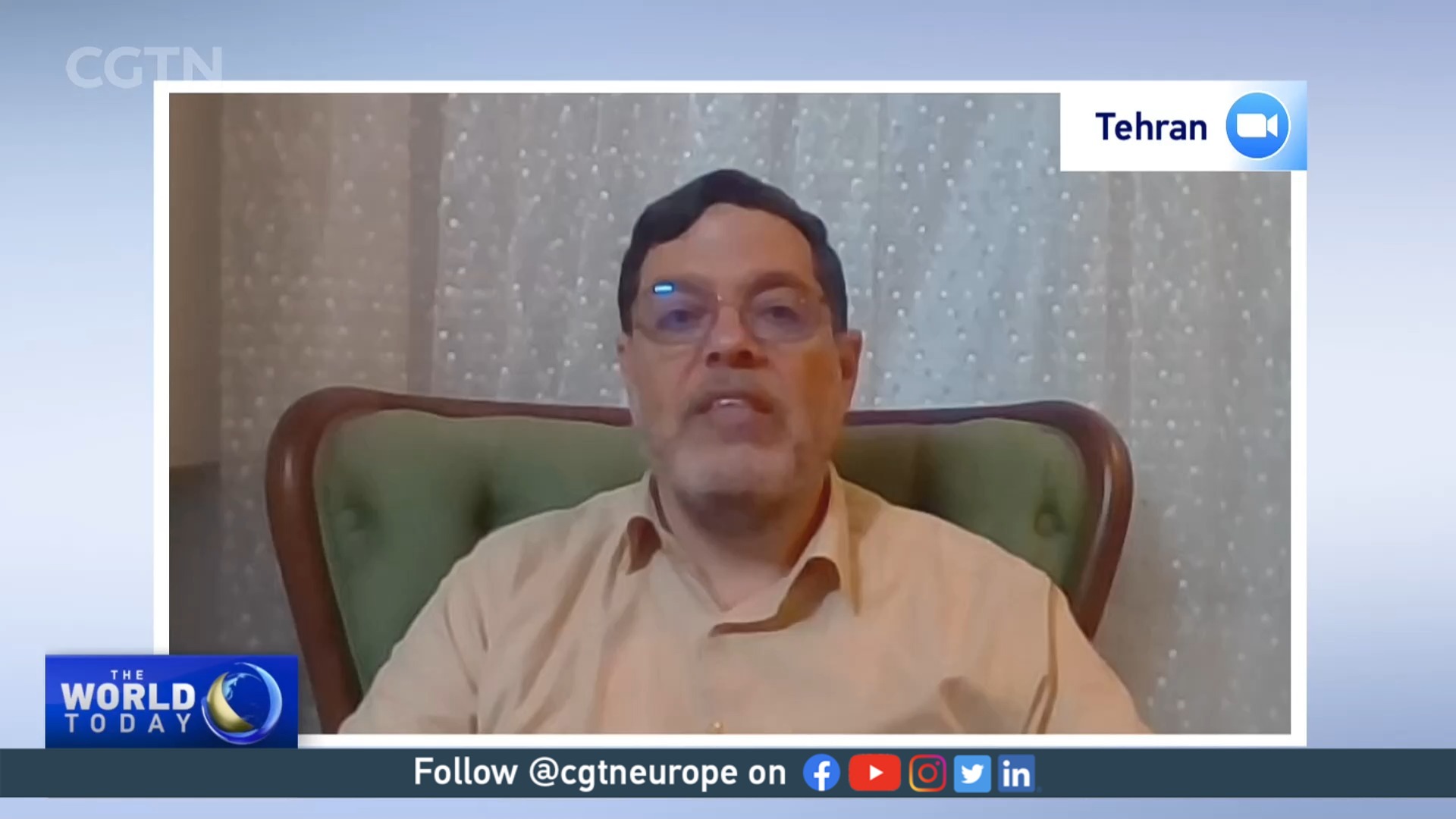02:20

As the foreign ministers of Iran and Saudi Arabia continue talks in Beijing for the first formal gathering of their top diplomats in more than seven years, Mohammad Marandi, an Iranian American academic and political analyst, tells CGTN Europe that it is yet another indication that being an ally with the U.S. is not a guarantee of stability and protection.
After years of hostility that fueled conflicts across the Middle East, Iran and Saudi Arabia agreed to end their diplomatic rift and reopen diplomatic missions in a significant deal facilitated by China last month.
READ MORE
Greek police investigate officer who opened fire
Village basketball tournament goes viral
One in every six adults experience infertility
CGTN Europe spoke to Marandi to unpack the significance and the host of reasons behind the development.
"It is a symbol of the U.S. decline in the region," says Marandi. "Until now, the U.S. has been trying to prevent different countries in the region from engaging with one another. And thus preventing regional integration, which is not in the interests of the U.S.."
Saudi Arabia and Iran, the Gulf's dominant Sunni Muslim and Shi'ite Muslim powers respectively, said in a joint statement they would launch arrangements to reopen embassies and consulates within the two-month period stipulated in the deal.

Iran's Foreign Minister Hossein Amir-Abdollahian (L) shaking hands with Saudi Foreign Affairs Minister Prince Faisal bin Farhan and Chinese Foreign Minister Qin Gang (C) during a meeting in Beijing. /Iranian Foreign Ministry/AFP
Iran's Foreign Minister Hossein Amir-Abdollahian (L) shaking hands with Saudi Foreign Affairs Minister Prince Faisal bin Farhan and Chinese Foreign Minister Qin Gang (C) during a meeting in Beijing. /Iranian Foreign Ministry/AFP
'Decline of the U.S. presence'
"We're seeing that Iran and Saudi Arabia are moving towards rapprochement. We see the Saudis are now doing the same with Syria. Hopefully there will be some positive news from the negotiations between the Syrians and the Turks, Iran and Russia in Moscow," added Marandi.
"So there is a general move towards greater understanding, decreasing tensions, and that has very much to do with the decline of the U.S. presence."
In March, China helped broker the surprise deal in a display of Beijing's growing influence in the Middle East. China's role in the breakthrough shook up the dynamics in a conflict-ridden region where the U.S. has for decades been the main mediator.
"When the U.S. withdrew from Afghanistan and effectively dumped its own allies, that sent a signal to U.S. allies across the region, if not across the world," explains Marandi. "And in fact, as the Iran-Saudi negotiations were taking place in Beijing a few weeks ago, the U.S. and the EU were putting a lot of pressure on the government in Georgia, which is friendly to the West, simply because the government in Georgia wanted to have control over the amount of money coming in from abroad.
"So the U.S. and the EU attacked a country that's friendly to them. And I think that also sent a message to countries across the region that being friendly to the U.S. or being an ally of the U.S. is simply not enough in today's world."
He says it should come as no surprise that Saudi Arabia, the United Arab Emirates and other countries are now looking for new partners to "lessen their dependance on the United States and the EU."
Subscribe to Storyboard: A weekly newsletter bringing you the best of CGTN every Friday